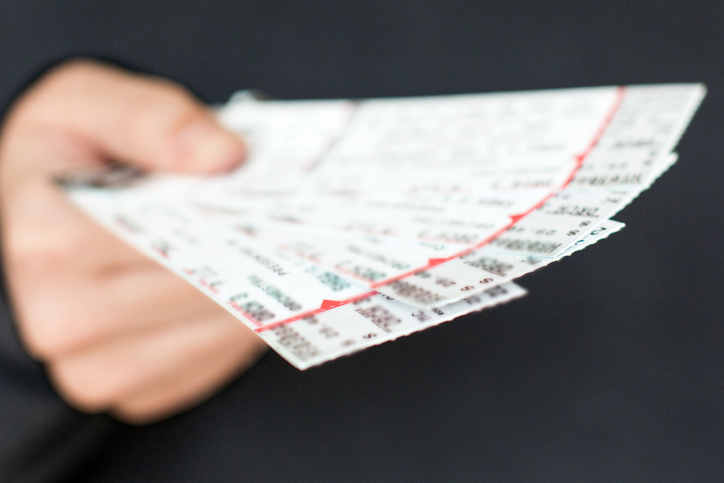When Do Ticket Prices Drop? Timing Secrets for the Savviest Fans
Every fan wants the same thing: a great seat at a fair price. But ticket prices aren’t static — they fluctuate constantly, sometimes dozens of times a day. Understanding when ticket prices actually drop is the difference between overpaying and scoring a deal that makes you feel like an insider.
This article is part of our Ticket Buying Playbook, Pingseat’s definitive guide to smarter ticket strategies. Be sure to explore our other deep dives, including Where Hidden Ticket Deals Live and How to Use Alerts to Snatch Bargains Without Bad Seats.
Why Ticket Prices Fluctuate
Ticket markets operate like stock markets. Prices move in real time based on supply, demand, and perception. According to Forbes, the secondary ticket market alone is a multibillion-dollar industry, driven by algorithms that constantly adjust to buyer activity. Sellers want to maximize revenue, while buyers wait for dips — and the balance between the two creates volatility.
Factors that influence ticket prices include:
- Matchup quality (rivalry vs. average opponent)
- Day of the week and time of day
- Injury or roster news
- Weather (for outdoor games)
- Season timing (early-season vs. playoffs)
That means the “cheapest time” isn’t one-size-fits-all. Instead, fans need to know how timing plays out across different windows — daily, weekly, and seasonal.
The Best Time of Day to Buy
Data from SeatGeek shows that prices often dip in the mid-morning hours, between 10 a.m. and 12 p.m. local time. Fewer fans are shopping during work hours, which reduces demand pressure and gives sellers incentive to lower prices to move inventory.
In contrast, evenings tend to bring price spikes. After work, fans are browsing ticket sites at the same time, creating a competitive environment. Sellers know this — and algorithms often push prices upward.
Pro tip: If you can, check prices during lunch breaks instead of evenings. You’ll often see cheaper listings pop up midweek in those quieter hours.
The Best Day of the Week to Buy
Several studies, including analysis by TiqIQ, suggest that Tuesdays and Wednesdays are the most consistent days for lower prices. Here’s why:
- Weekend games create surges in demand (and higher prices) late in the week.
- After a weekend, sellers adjust their inventory, often reducing prices on unsold tickets.
- Midweek games have softer demand, keeping resale prices in check.
By contrast, Fridays and Saturdays are peak browsing times. More fans are online, more money is in circulation (after payday), and prices reflect the heightened demand.
How Far in Advance Should You Buy?
The timing question also applies to how many days or weeks before an event you buy. And the answer depends on the type of event:
- High-demand events (playoffs, rivalry games): Buy early. Waiting risks prices climbing as supply dwindles.
- Average regular-season games: Waiting often pays off. According to The Wall Street Journal, prices can fall significantly in the 72 hours leading up to tipoff, especially for lower-demand matchups.
- Concerts & tours: Demand spikes at the on-sale date and again close to the show. The sweet spot is often a few weeks out, when resellers with extra tickets start undercutting each other.
Common Myths About Ticket Timing
Fans often rely on outdated advice. Let’s bust some myths:
- Myth #1: Prices always go down closer to the event.
Not true — for big games, they often rise as inventory dries up. - Myth #2: Buying on release day guarantees the best deal.
False. Resale markets can undercut face value later, especially if initial demand was overestimated. - Myth #3: The box office is always more expensive.
Not necessarily. Teams sometimes discount unsold inventory closer to game day.
Seasonal Patterns to Watch
Beyond days and hours, entire seasons have pricing rhythms. For example:
- NBA: Early-season games (October/November) tend to be cheaper before playoff implications heat up in spring.
- NFL: Mid-season games against weaker opponents often see price drops, while rivalry games stay high all year.
- NCAA Basketball: January games before March Madness are often overlooked bargains (NCAA Tickets).
- Concerts: Outdoor summer tours can see dips due to weather uncertainty (Billboard).
For a deeper dive into seasonality, see our guide: The Cheapest Times of the Season to Buy Tickets.
Why Ticket Prices Spike Suddenly
Just as prices sometimes crash, they can also surge overnight. Factors that cause sudden spikes include:
- Star player returns or milestone chases (ESPN coverage often drives demand fast)
- Big-game weather forecasts that improve conditions for outdoor stadiums
- Team winning streaks fueling playoff hype and fan excitement
- Broadcast schedule upgrades (e.g., flexed into primetime)
We explore these spike factors in detail in Why Ticket Prices Spike: 7 Reasons Fans Suddenly Pay More.
How Pingseat Helps You Catch Drops
The challenge isn’t knowing these patterns — it’s reacting to them in real time. That’s where Pingseat comes in. Instead of manually refreshing ticket sites, you can:
- Set price thresholds for specific sections and rows.
- Get alerts the moment prices drop below your target.
- Avoid settling for bad seats by tuning your filters precisely.
That way, you don’t have to be glued to the market — Pingseat works for you.
Key Takeaways
- Check tickets mid-morning (10 a.m.–12 p.m.) for best daily deals.
- Target Tuesdays and Wednesdays to catch weekly dips.
- Buy early for high-demand events; wait for average games.
- Watch seasonal rhythms — early NBA, mid-NCAA, off-peak NFL.
- Use Pingseat alerts to automate your timing strategy.
Next Steps
Ready to start buying smarter? Join Pingseat today and catch ticket price drops before other fans even notice. Then continue your learning with the full Ticket Buying Playbook, which includes:
